How long do hedgehogs live at home?

Hedgehogs are adored by children, and adults can rarely hide their affection at the sight of this cute mammal. In the wild, hedgehogs live no more than 5 years, but at home - all 10-15. And although this animal cannot be called convenient for keeping at home, more and more hedgehogs began to be bred on purpose, not only for street ones, but for decorative ones.
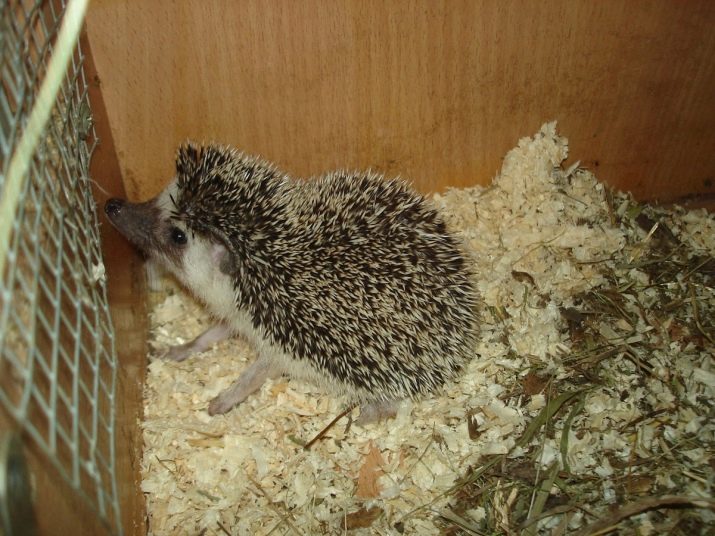
What affects life expectancy?
It is believed that animals in captivity live much less than in the wild.
And often this is true, but not for house hedgehogs, for sure. It is definitely easier for hedgehogs to survive under the auspices of humans.
The reasons for such a high life expectancy:
- the absence of enemies (foxes, owls and badgers) and other obstacles that could cost an animal life;
- availability of food - in nature, there may be a lean season or conditions that do not allow the hedgehog to find food for himself, and at home he will not die of hunger;
- if the pet gets sick, the owner should consult a veterinarian; in the wild, a thorny animal can only rely on itself;
- at home, the hedgehog does not go into "hostilities" for the female or for the territory, and since there is no conflict, there are no victims either;
- Finally, in the wild, hedgehogs often find themselves under the wheels of a car, they can die due to forest fires, as well as during the poisoning of agricultural crops with pesticides.
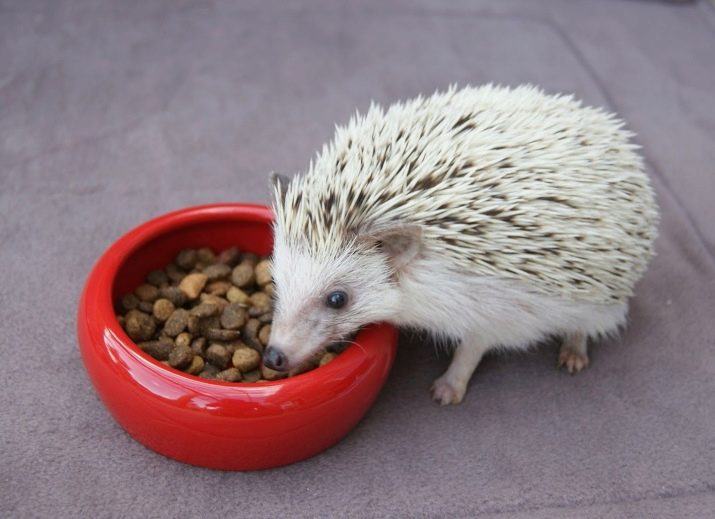
So it turns out that in a greenhouse home, the hedgehog is not in much danger, and he can, as a result of the care of his owner, become a real long-liver.
How many years do they live?
The hedgehog you can meet on the street will be lucky if he lives for 5 years. This is considered a decent lifespan for a hedgehog in its natural habitat. But if the hedgehog turns out to be your pet, he can count on 10 or even 15 years of life.
But do not save forest hedgehogs and bring them home, changing the animal's lifestyle. This is not only stress for the hedgehog itself, but also for humans.
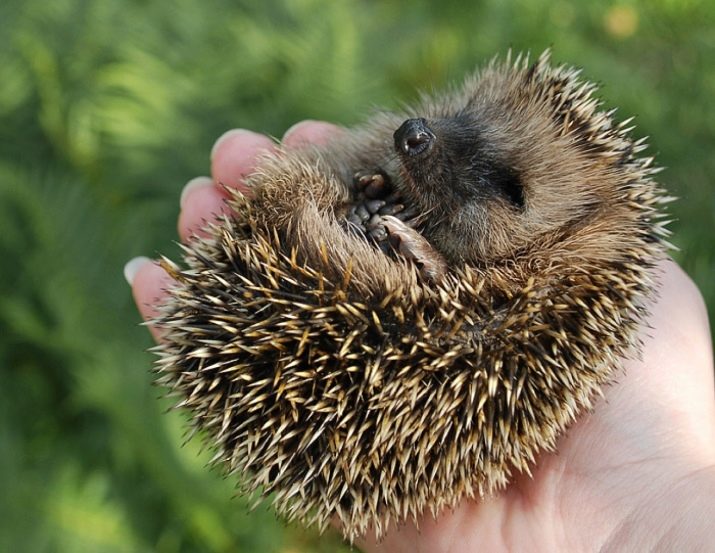
A healthy animal feels great in its natural environment, it feels better there, whatever one may say. And your help can turn into wounds and bites in your direction - a prickly baby will want to defend himself. Finally, the hedgehog, alas, is a carrier of serious diseases - salmonellosis, deprivation and even rabies. Fleas and ticks live in the animal's wool and needles. That's why an innocent idea to bring it home, in fact, a danger and great stupidity.
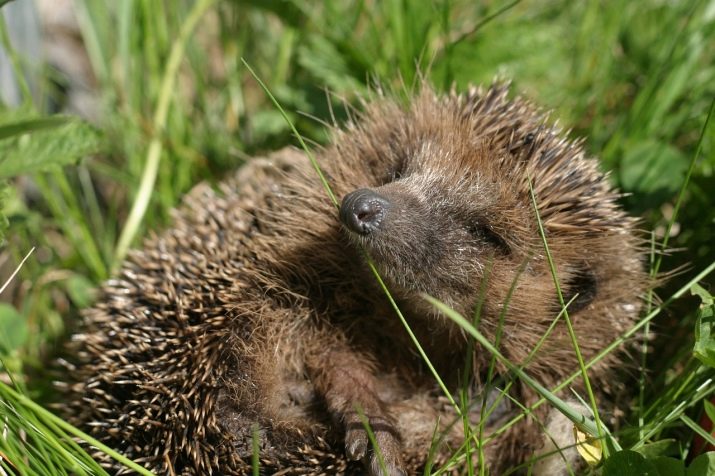
But fortunately, there are hedgehogs that provide for keeping at home - African, steppe, Eurasian and eared... The most popular representative of domestic hedgehogs is the African pygmy. This is a truly decorative animal, bred specifically for living with humans. What breeders love the African hedgehog for is its small size and good immunity. He really can live with you for a long time, more than a decade.
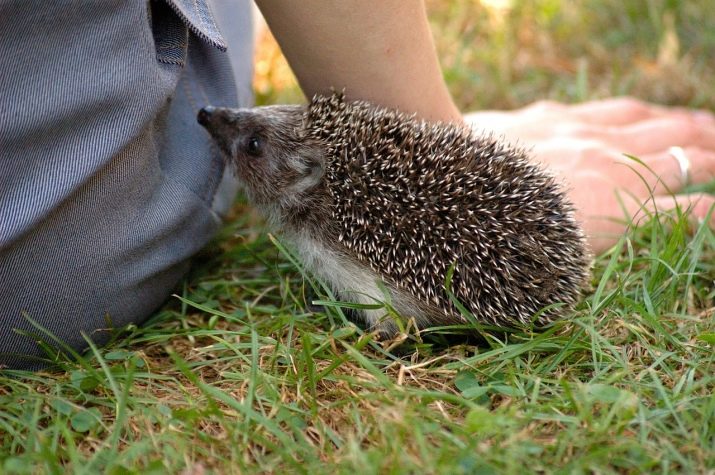
How to extend the term?
Taking into account the natural characteristics of the animal is always important. Do not forget that hedgehogs are nocturnal inhabitants and, most likely, your biorhythms will not coincide.
Optimal conditions of detention
At the pet must have your own house. Provide the baby with a nest where he will be comfortable, calm. He should perceive the house as his own territory, where there is no other way. Special cages can be found at the pet store. And you can equip it for maximum hedgehog comfort: toilet, feeders, drinkers, rattles and even a jogging wheel. Still, the pet also needs such "simulators" - physical activity for a house hedgehog is required.

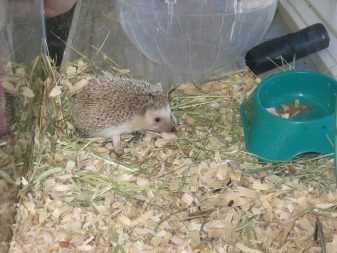
And one more important aspect is winter sleep. In the wild, the animal accumulates a certain nutritional reserve by winter, which helps it survive hibernation. Therefore, the owner's task is to feed the baby well.
The hedgehog will probably not be able to sleep in a warm room, so for the winter it needs to be moved to a place where the temperature is not higher than +5. This is the big problem of keeping hedgehogs in the apartment.
Also remember that hedgehogs can fall from a height and break. Dangerous for the animal and contacts with wires, and household chemicals.
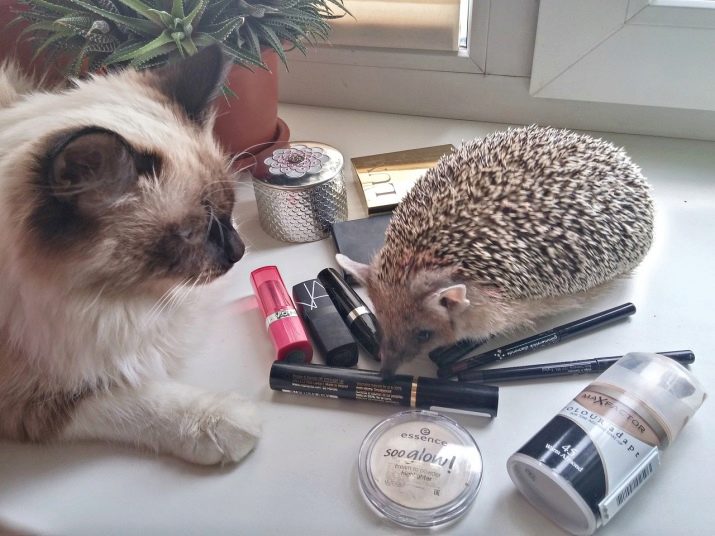
Correct feeding
Since hedgehogs are predators, they need animal protein. Therefore, hedgehogs are given meat, offal and fish. But you should not protect pets from vegetables and fruits either: they love carrots and apples, they will not give up crispy cabbage and fresh zucchini. Fruit and vegetable juices are an excellent source of fiber and vitamins for small carnivores. And pets will not refuse a handful of berries either, for them it will be the best dessert.
In the wild, hedgehogs hunt insects - beetles and flies, grasshoppers and locusts. It is unlikely that the owners will arm themselves with a butterfly net and run to get a treat for the pet (although this option is also possible), but buying insects in a pet store is more realistic.
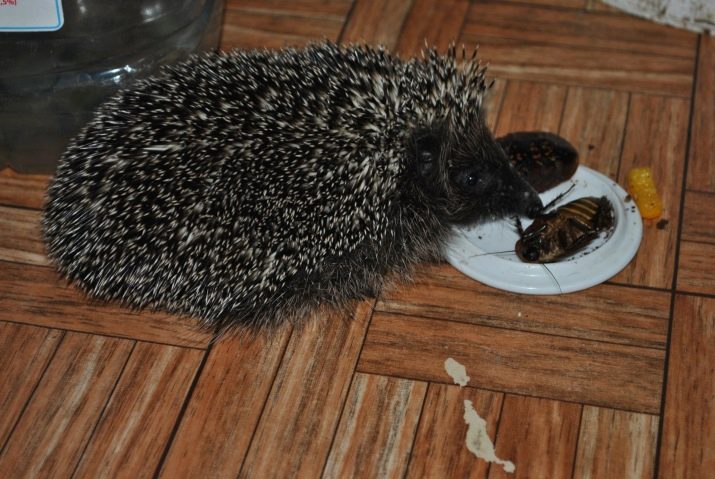
Can and should be given to hedgehogs cereals, buckwheat and rice are most suitable... Hedgehogs are also given eggs: chicken and quail, boiled and raw. Industrial feed, which should be based on animal protein (at least 30% in the composition), will also be a useful purchase. Fat in the feed should not exceed 14%.

Care
Do not let the hedgehog, which has just settled in your house, go for a walk. If you give him freedom right away, he will hide under the sofa somewhere, and it will be a problem to lure him out of there. And the hedgehog also has sharp claws, and he can easily scratch the floor or valuables. Let him settle in his house, where he will spend most of the time.
The hedgehog should be bathed, but only for an adult. The water temperature during bathing should not be higher than 34.8 degrees, and its level should not exceed 5 cm. Lower the animal into the water gradually, allowing it to get used to the procedure. Support the pet by the head, wash its abdomen and legs.The hedgehog's needles are cleaned with a toothbrush and baby shampoo, which must then be thoroughly washed off. Dry the hedgehog with a towel, but do not dry it with a hairdryer (it will get scared).
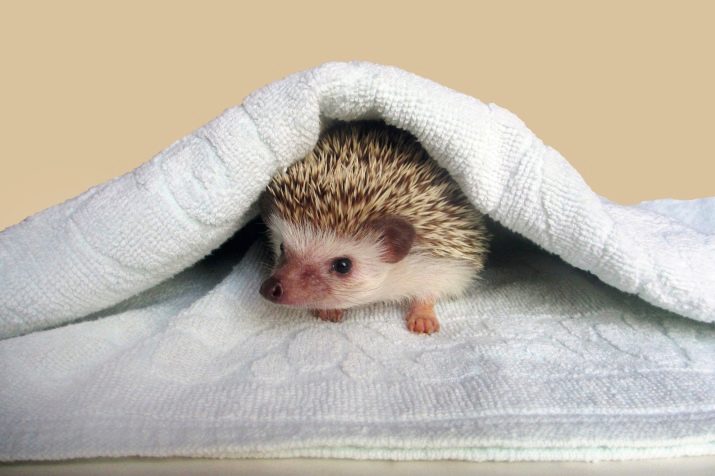
Don't try to keep the hedgehog company. It is a solitary animal. If you need a pair of hedgehogs, you have to give them a cage each. Do not teach the animal to enter the bedroom: from its stomping and snorting, you will not be able to fall asleep.
The animal hibernates in autumn - remember the intensive feeding that precedes it. The pet will become lethargic and drowsy, and as soon as you notice it, it's time to prepare a hibernation place. In a shed, garage, in the attic, a hedgehog will be quite comfortable to spend the winter. Make a nest for him out of hay and sawdust, dry leaves and rags. In his nest, he sleeps until spring. In a warm room, the hedgehog will not hibernate.
Troubled with a hedgehog is a reality that cannot be avoided. If you are not ready to take care of the animal according to the recommendations, if you cannot provide it with the proper conditions, it is better to abandon the idea of establishing a hedgehog.
For information on how to properly keep hedgehogs at home, see below.








